Some things appear silly while some others scare us silly. Read and decide for yourself which is which.
If you have driven behind a truck on one of the highways you would surely have come across interesting legends inscribed on the back. While ‘Horn OK please’ and ‘Ma ka aashirwad‘ are the most popular, another one that one can see on one out of every two or three trucks is ‘Buri nazar wale, tera munh kala’ (may the face of the one with the evil eye be blackened) – though for the life of me I can’t understand why someone would cast an evil eye on an ugly truck!
When one builds or buys a house, it is customary to hang a white pumpkin at the entrance where it would be prominently visible. It is sometimes painted with fierce features to resemble a rakshasa or just hung with black rope. This is ostensibly to draw away the gaze from the beauty of the house to prevent the buri nazar of random people.
Then there is the custom of putting a black dot – kala tika – on the chin/cheek of a little child, as also on his palm and feet to make them look ‘flawed’ so as to not invite envious looks and negative vibes. And grandmothers routinely ‘remove’ the effects of the evil eye on babies and children with a handful of salt or camphor, which they wave clockwise and anti-clockwise in front of the children.
It is also to ward off this ubiquitous buri nazar that many south Indian homes have the picture of Ganesha with extra large eyes prominently displayed on their front doors (kann drishti pillayar or shubh drishti Ganesha).
Not just in India but elsewhere too, this ‘evil eye’ plays a very large part scaring people. Nor is it religion-specific and confined only to Hinduism. It is synonymous with curse and bad luck both in Christianity and Islam. In fact talismans and charms are worn and the custom of ‘touching wood’ are both supposed to ward off the evil eye. Jews have the symbol of the open palm with an eye in the centre, called hamsa, which is hung at the entrance and plays the same role as that of the picture of Ganesha. Muslims wear taveez (talisman) with inscriptions from Quran. The Chinese system of Feng Shui says that one should fix a mirror that is visible to the visitor when the front door is opened.
So what is this evil eye exactly? No, don’t hasten to dismiss it as being superstitious hogwash. Admiration is very different from envy. While the former is a positive feeling, the latter is charged with negativity. It is this negativity that harms as there can be nothing evil about someone’s look. And by negativity one does not just mean thinking ill of someone, but even feelings like jealousy, hatred and sadness — all being negative emotions, can also result in negative actions to harm the object of envy.
Today it has become a fashion to share everything on social media – from the exotic locales visited to the pictures of one’s children. Some even record every stage of a child’s growth and share it online. While the settings are regulated as to who can view the pictures, there are hackers and unethical people galore who can misuse any of the pictures for nefarious and criminal activities. Why invite such a fate?
While the use of talisman and charms or even ‘removing’ evil eye can be debated and either accepted or junked as superstition, I think the use of a mirror at the entrance of the house is a brilliant idea. When one looks at oneself in the mirror, what emotions can one have except positive ones? What an idea, sirjee!
Then we come to the auspicious and inauspicious symbols. Black is considered inauspicious, due to its connection with death. Though in India, even white is the colour of death. So for us, both black and white are inauspicious and even hint of the colours are avoided for weddings and other such celebrations. But Tamilians give a black sari during the god-bharai to a girl expecting her first child. This is supposed to work like the kala tika, to ward of the evil eye, so it is not inauspicious for that particular occasion!
Death is generally considered inauspicious, so much so that in many Indian communities periods of quarantine is observed when the bereaved family members seclude themselves and don’t partake of any celebrations for stipulated periods. In villages and small towns, the custom of washing one’s front yards after a funeral passes that way, still exists.
These practices have at least some validity, as there are chances of infection by touching or even being close to a dead body, which requires purification and to enforce this, our ancestors decided to scare people into believing it was inauspicious and so not good.
But what about good and bad omens?
The Tambrahms believe that if one sees a funeral when going out on an important work, it is a good omen! So much for considering death a negative thing! Was it some philosophical soul who thought of this one, I wonder – someone who believed that death was a passing on to another, better plane and so was a thing to celebrate?
There are any number of beliefs that Christians have, though the Bible is supposed to forbid superstitious beliefs. Tossing a pinch of salt over one’s shoulder after spilling salt, not walking under a ladder leaning against a wall, knocking on wood, crossing one’s fingers, calling out ‘Bless you!’ when someone sneezes….many of the above are associated with a fear of Satan. You can read about these and more such here and here.
Good omen or bad, good luck or bad, things that are destined to happen will happen. We are only tying ourselves into knots by worrying about them. Unlike negative feelings, these are mere beliefs. But some of them have become so ingrained in our psyches that we act involuntarily.
That brings me to the term auspicious. When we say something is auspicious, we mean prosperity, joy, growth and peace. Attributing this characteristic to things depends upon what we feel symbolize these. Traditionally things like flowers, chandan, turmeric, kumkum etc are considered auspicious. Likewise in the south, plantain trees with the bunch of fruits a flower at the end of it are considered auspicious, as the tree stands for the progress of generations – with a new one growing from the roots of the old one. Therefore one can find a pair of these trees or even small plants at the door to a wedding hall or tied to the chowki bearing the deities during special pujas at home.
But what I find unacceptable is the term inauspicious when applied to people, especially women. A widow is considered inauspicious while a suhagan is auspicious. Likewise, a woman without children is excluded from ceremonies like god-bharai and namkaran.
How can one presume so unerringly that a married woman is content and happy and therefore will have nothing but positive emotions and a widow by inference would be so unhappy as to wish ill? And this is not just in Hindu culture but also in Islam where a bewa (widow) is considered inauspicious.
The thinking is so flawed as to make it sound not just callous, but also silly. I know of any number of supposedly auspicious suhagans who are so full of ill will and discontent that they can easily spread negativity and just as many wonderfully positive widows who should be gracing all such functions for the positivity they carry. Likewise, I know of many childless women who are so full of love and affection for children that they can never bring anything but love and be epitomes of auspiciousness. Barring people from participation on the basis of assumptions is cruel to say the least.
Why attach such stigmas to simple negative emotions, which can emanate from any source — men, women, young and old? And while we are singling out those who are supposedly negative, let us also learn to separate the real and false and the pretenders, for there are many of the last two lurking around us under the cloak of positivity.
How do you feel about all this buri nazar and good omen business? And while you reply, let me cross my fingers for good luck!

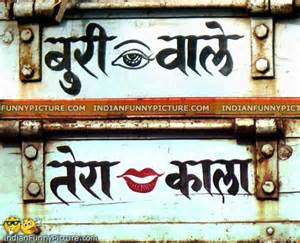
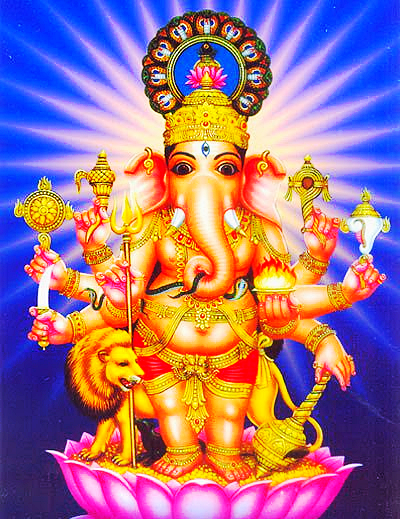
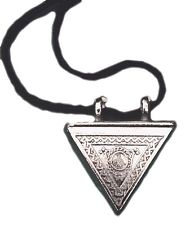
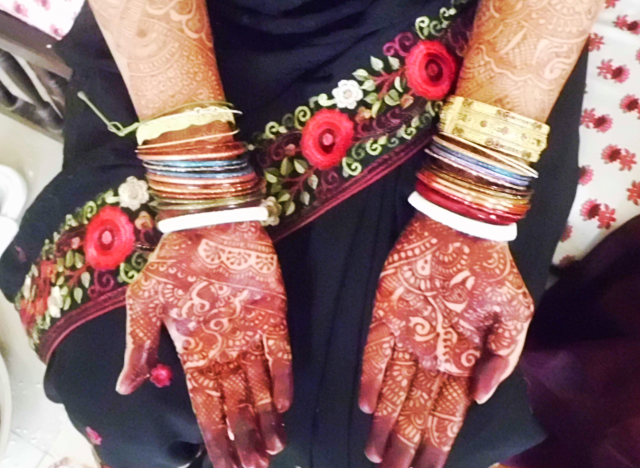
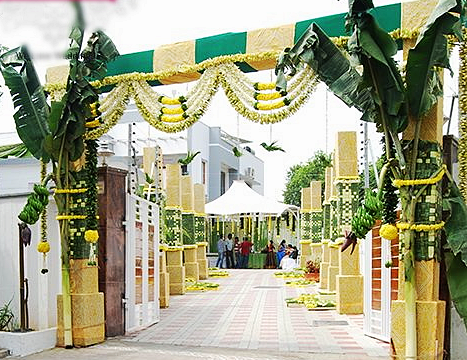





You can’t altogether deny your belief about superstition.Whe we leave home for various reson,may it be travel,exams,joing a job etc we do see Ragukalam,emakandam etc. Isn’t it Zephyr. superstitions can sometimes work, because believing in something can improve performance on a task too.
LikeLike
Very true Rajee. Believing that the time is good for doing something will actually make the person perform better, unconsciously. And yes, we all follow some superstition or the other. My point is that blaming only eastern religion for such superstitions smacks of conceit on the part of the west.
LikeLike
I didn’t know many of them what you listed out.I think many of the superstitions give people a feeling that they can control their destiny this way. Even highly educated people fall prey to thoroughly baseless stuff because they fear. And fear is a great driver.
LikeLike
Why, Asha! That is such a wonderful interpretation – of people believing they control their destinies when they follow superstitions! But it is also a fact that many beliefs are based on common sense and some truth too, as in the case of negative thoughts and vibes.And yes, fear is a great driver.
LikeLiked by 1 person
Before I say anything else on this topic, did you hear that the Chief Minister of Karnataka, who is all set to bring a legislation banning many “Hindu” superstitions (of course, because other religions don’t have any superstitions!) recently changed his car because a crow sat on it just as the CM was about to leave for some place. So much for regulating other people’s behaviour and personal practice!!!
Well, my mother for some reason believed in this whole ‘no washing hair or no washing of clothes on Thursday’ thing. The no-washing of clothes thing made sense to me as I understood this as one day of the week when women in earlier times were given a break from the drudgery of washing clothes. But the no-hair-washing thing still remains beyond my understanding.
But the whole idea of negativity behind the evil eye etc isn’t too difficult to comprehend if we accept that there is a whole other plane of reality beyond the visible and the rational. There is definitely an influence of ill-will, bad thoughts, negative energies as they interact with our subtle being, so I can appreciate the fact that people all across the diverse cultures have devised different ways to remove the ill-effects of such negativity.
When we bought this house in which we live, the previous owners had put that painted evil-eye-remover face on one of the outer walls of the house. We didn’t have the heart to remove it, it stayed there for several years. And then one day it just broke off during a storm. We haven’t replaced it, nor do I feel the need to do so. I have put some other objects that I consider ‘auspicious’ near my front door. And I have a vision of placing something else (something I consider auspicious) on that spot where the earlier object was put up by previous owners. I still haven’t found the right match (as per my vision), so that spot remains empty as of now.
And yes, this whole thing about considering widows or childless women inauspicious at certain occasions is completely rooted in ignorance and prejudice. I am glad it is slowly going away, at least in urban areas.
LikeLike
I am not surprised by the Karnataka CM’s actions at all. After all, an earlier one had allowed the so called ‘healer’Benny Hinn to conduct his show while disallowing Hindu groups to congregate for their worship, saying they were propagating blind faith.
Psst…many superstitious beliefs are rooted in plain practicality or common sense. Do you know how washing hair can result in strands of black and white hair of various lengths to shed? And who ends up cleaning the mess? So if washing clothes was not allowed to give the womenfolk some respite from housework, this one is for the same reason, methinks 🙂 I remember my grandmother coming up with all kind of taboos to prevent things that irritated her. One of them was that fiddling with the bolts and locks alerted the thieves! She had confessed to making them up as she went along 😀 She was one colourful personality all right!
Replacing evil-eye removers with auspicious things is the perfect solution. Which is what the shubh drishti Ganapati is all about, isn’t it? Of course what constitutes auspicious depends upon what one believes auspicious is. Many customs are slowly disappearing even from rural areas, but I highlighted this practice of keeping out widows as it is still prevalent in many parts though done more subtly.
LikeLiked by 1 person
Yes, the no-hair-washing thing now makes good sense. Thank you! See, it always helps to talk with a wise lady like you! You are your grandma’s grand-daughter, after all 🙂
LikeLike
That was an elaborate elucidation Zephyr! Frankly, I do not give too much credence to superstious belief but it is impssible to isolate oneself::
LikeLike
The thing is, what one considers superstition makes all the difference. For instance those in the west condemn eastern religions for being superstitious but have their own set of them, which are fine, I guess 🙂
LikeLike
When I was smaller and mom tried to explain to me about ‘buri nazar’ I never quite understood her. Why would anyone want to cover up their beauty, I thought. She now tells me to not even think ill of anyone as it transfers negativity towards them. Maybe it has some meaning we do not understand but our ancestors did.
LikeLike
Ultimately it is about good and bad thoughts, which in turn spread good and bad vibes. And these in turn affect our lives, like it or not. And yes, our ancestors were wise, but we have not learnt to differentiate the grain from the chaff and so junk all such beliefs.
LikeLike
There are so many things our elders used to ask us to avoid, but I nevr believed in these things, so my children also grew up without any such belief, but now sometimes I do something, they feel surprised..I still feel that whenever i talk big, even if true i fall flat:)
LikeLike
When you had remained practical all these years, how come you have suddenly begun doing the same things you never did earlier? I am sure they will understand if there is a good reason for your change of heart about those things. I for one have immense belief in the negative and positive vibes associated with people.
LikeLike
One’s again very nice post,
Why people excludes widows or women without children from auspicious occasion? I hate this, I always feel इसमें उनकी क्या गलती है.
There are many more superstition in north, people are adviced not to cut nails or wash hair on Thursday, many people avoid washing clothes and giving cloths for ironing on Thursday.
On Saturday people avoid buying oil, ghee and utensils made of iron.
People avoid wearing new cloths etc
One very common superstition, if cat cross the road, change your direction.
LikeLike
You know Suman, some of these customs have common sense reasons too. So many of them have come to us from the west too. But plain superstitions, unless they harm someone are ok as Suresh has said. Discriminating against widows is something that I find very offensive.
LikeLike
Much as I would like to dismiss all this ‘buri nazar’ thing as superstitious nonsense, I can’t.
There is no doubt in my mind that certain places and people are ‘jinxed’. I avoid them both if I am intent upon something that matters a lot to me. I know I wont get my prayers answered if I were to encounter them.
Beyond that, as you said, it is more a habit to ‘touch wood’ when I am feeling very pleased about something. Of late, I’ve begun saying a short gratitude prayer too each time thankfulness strikes.
As for considering women inauspicious, I can’t imagine anything more unfair and downright regressive. Oh well!
Love!
LikeLike
The jinx is what negativity is all about, maybe? Which is why the place and the people seem to nix your plans? And so buri nazar is not superstition in that sense. That is why I divided the post into two sections. I am with you about targeting women for cultural and social reasons. A woman is a woman and she can be either the most positive or negative person regardless of her husband being alive. I wouldn’t call it regressive though, as if we regressed far enough back, we would be the most progressive society as far as women’t rights are concerned.
LikeLiked by 1 person
Ah! I have never had anything against any superstition – they add color to life, after all – but for the times when they adversely affect people, either the one who IS being superstitious OR the one ABOUT whom there is a superstition.
LikeLike
Ha ha! i like the bit about superstitions adding colour to life! Ah yes, when these affect others such beliefs have to rethought and discarded.
LikeLike